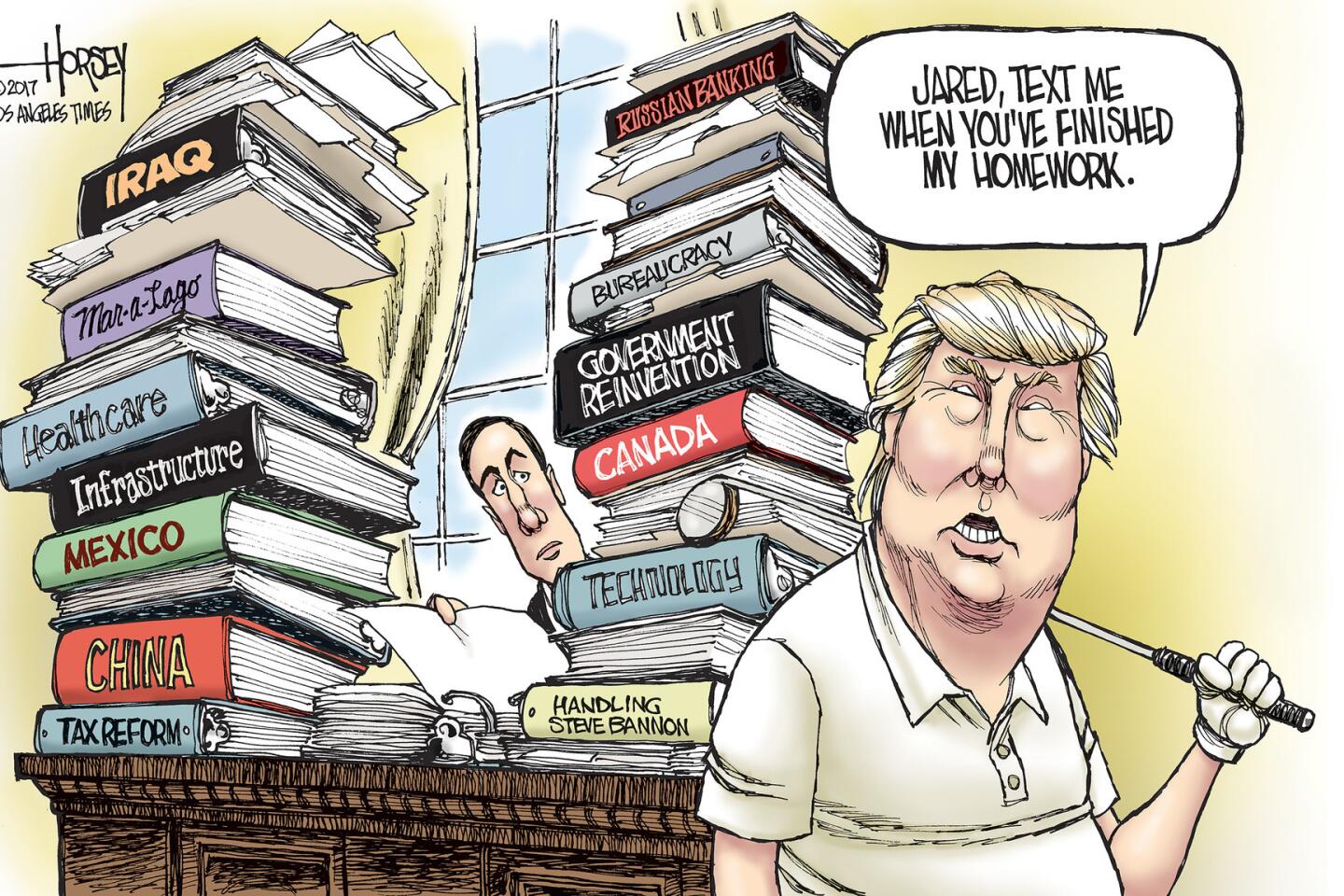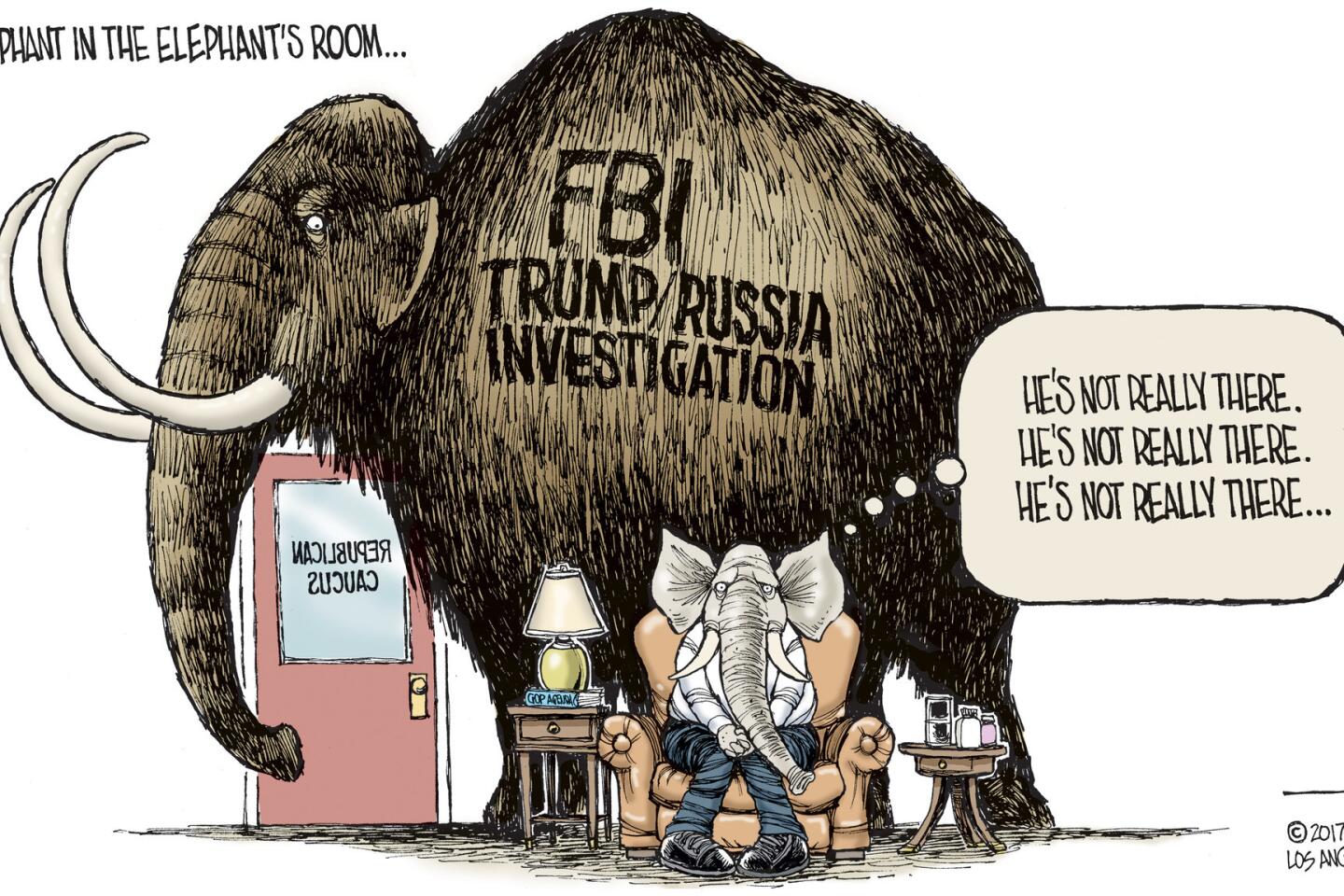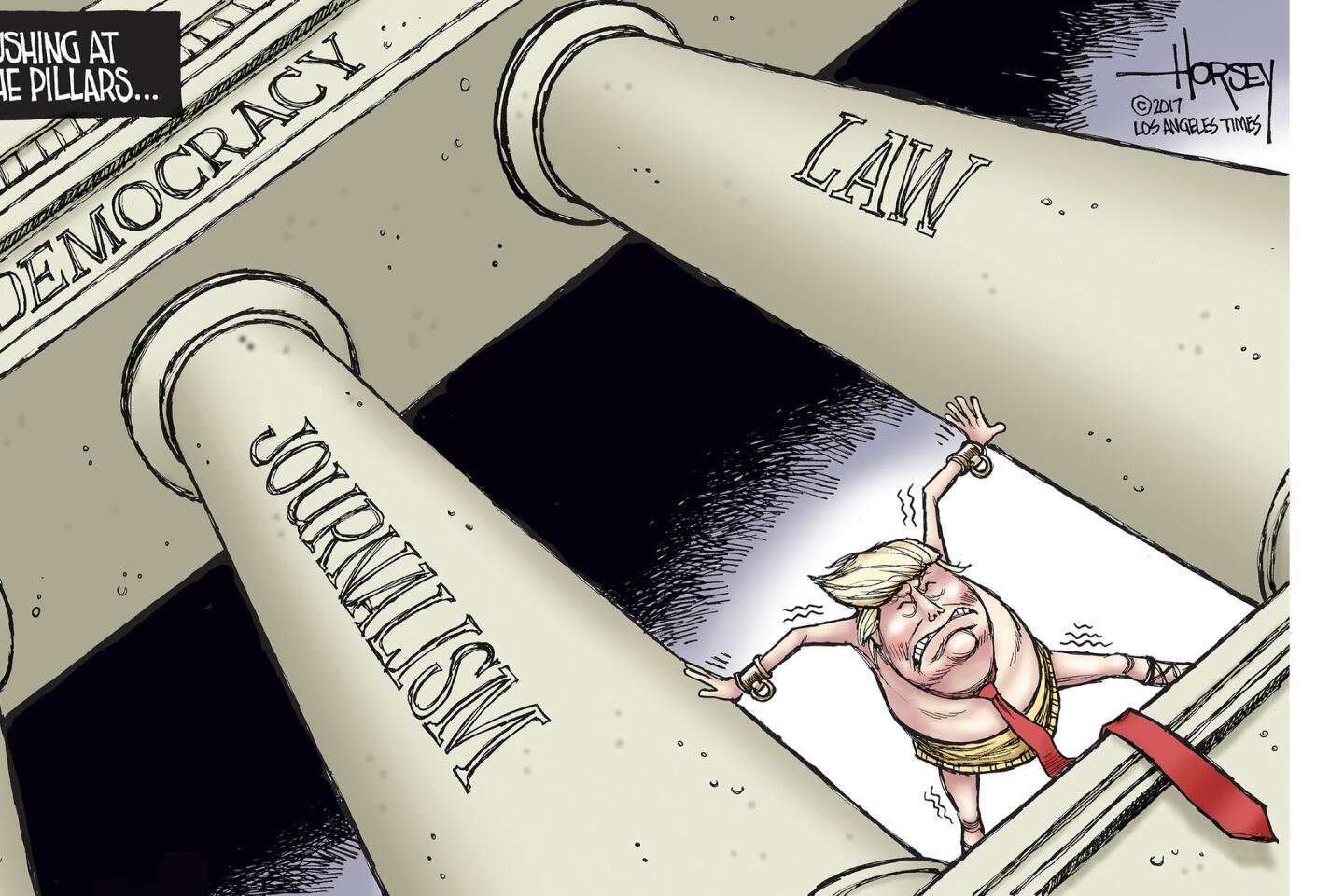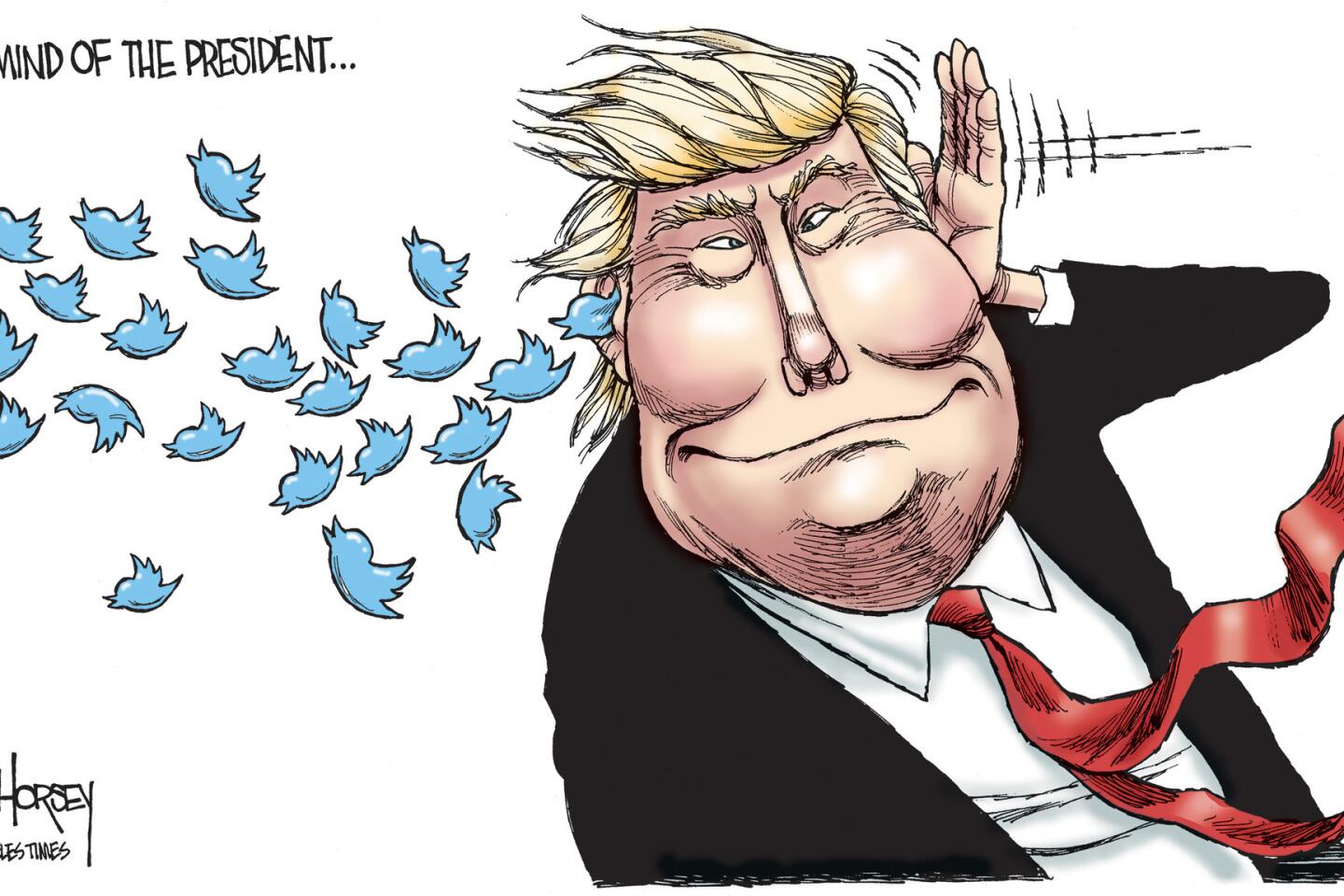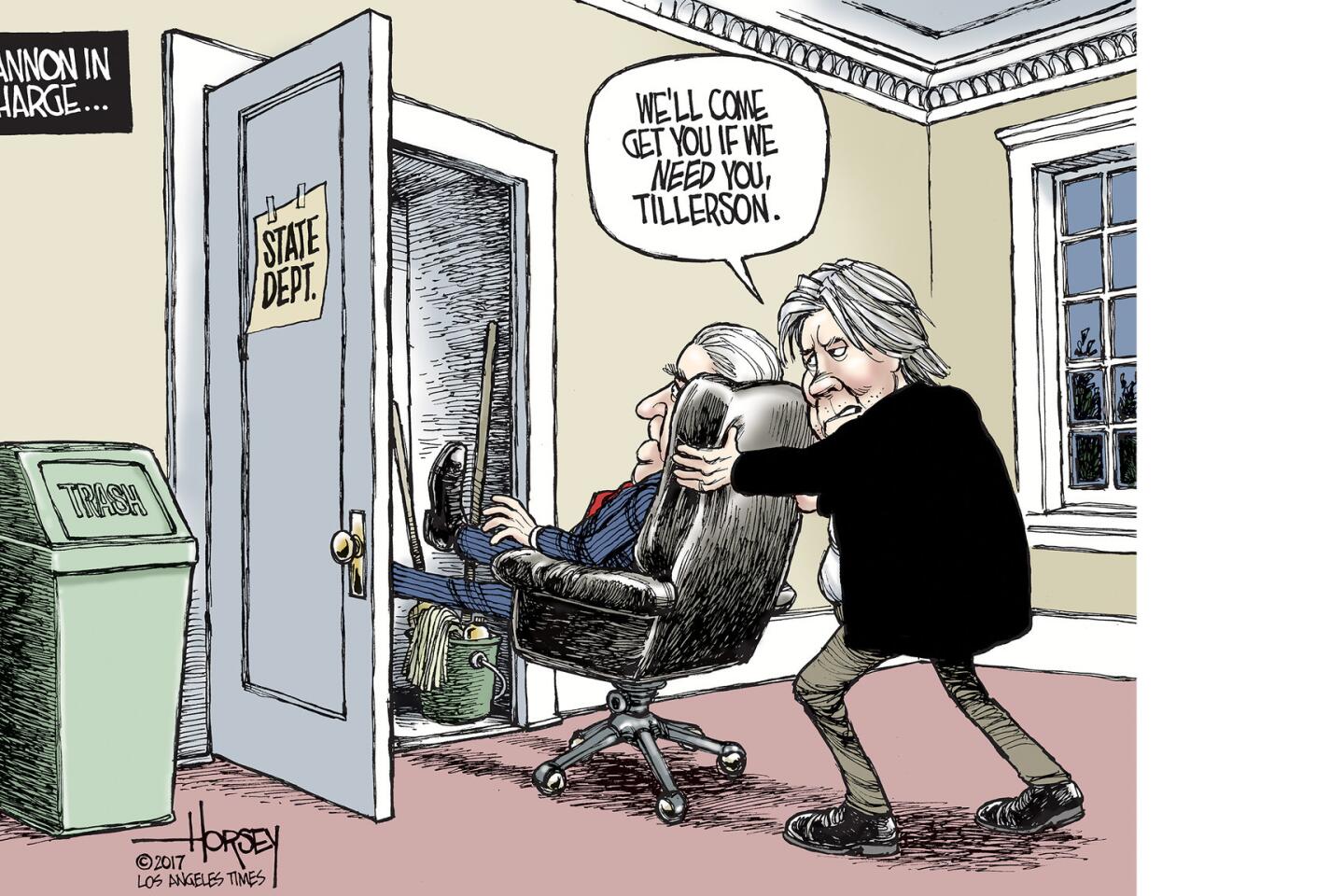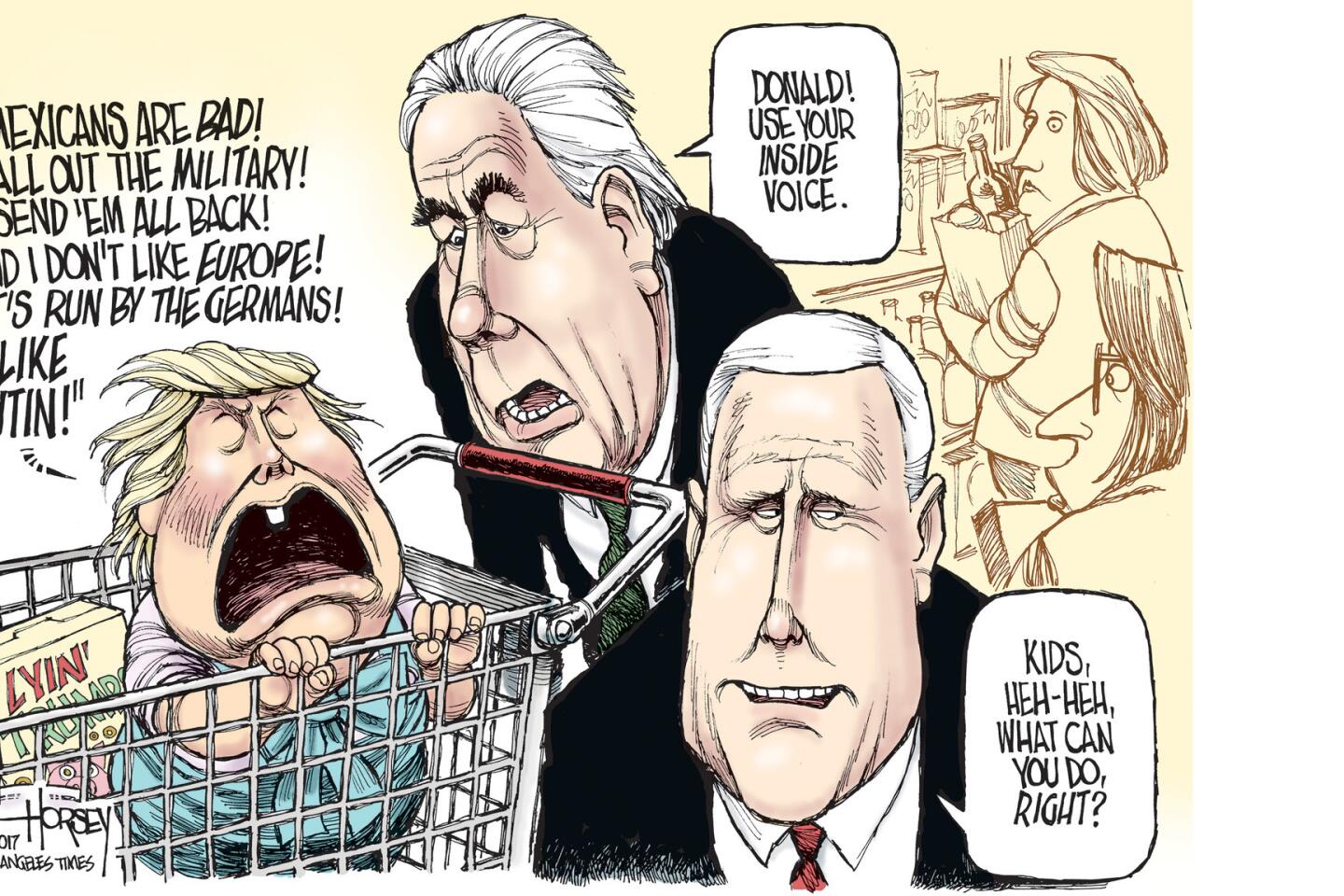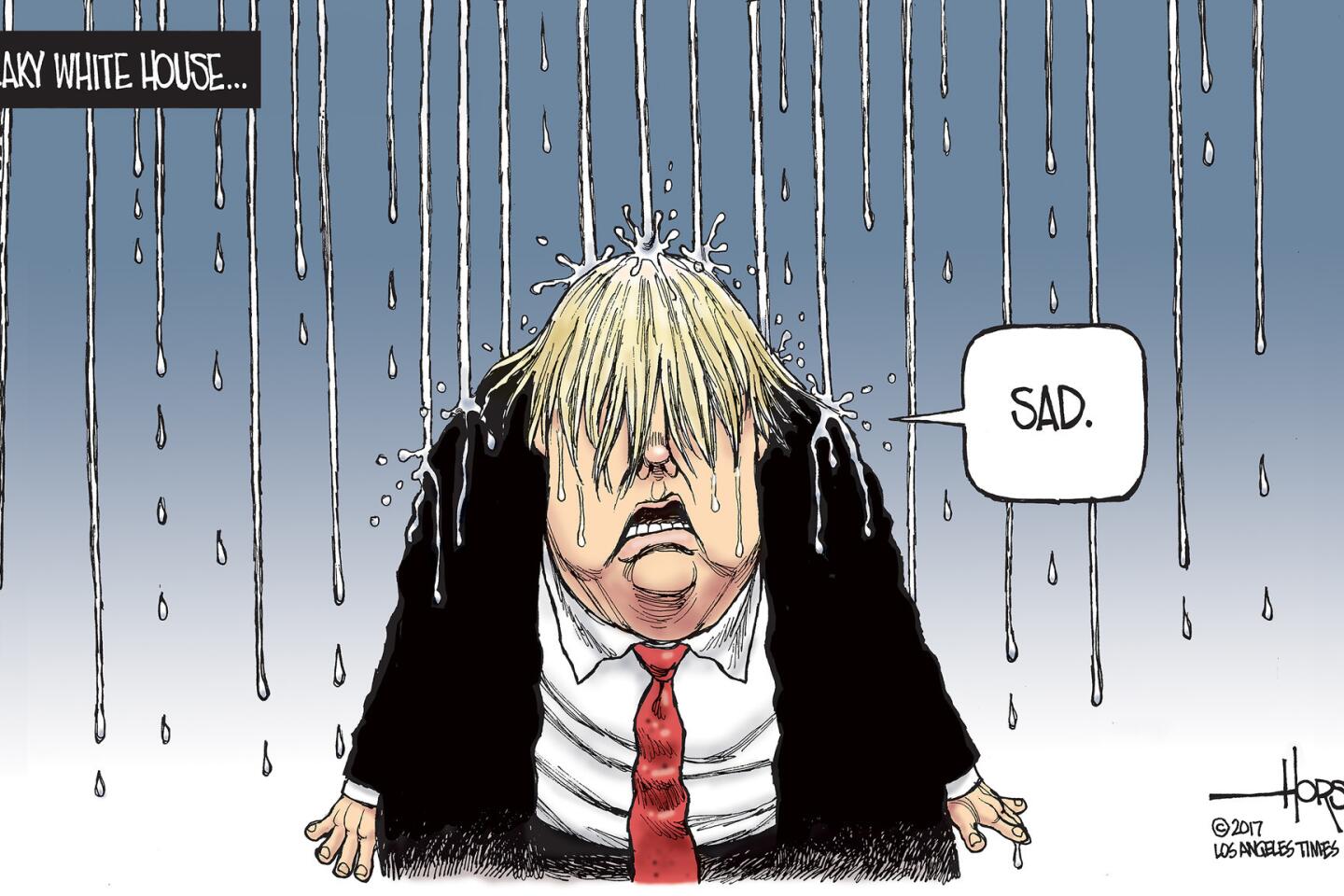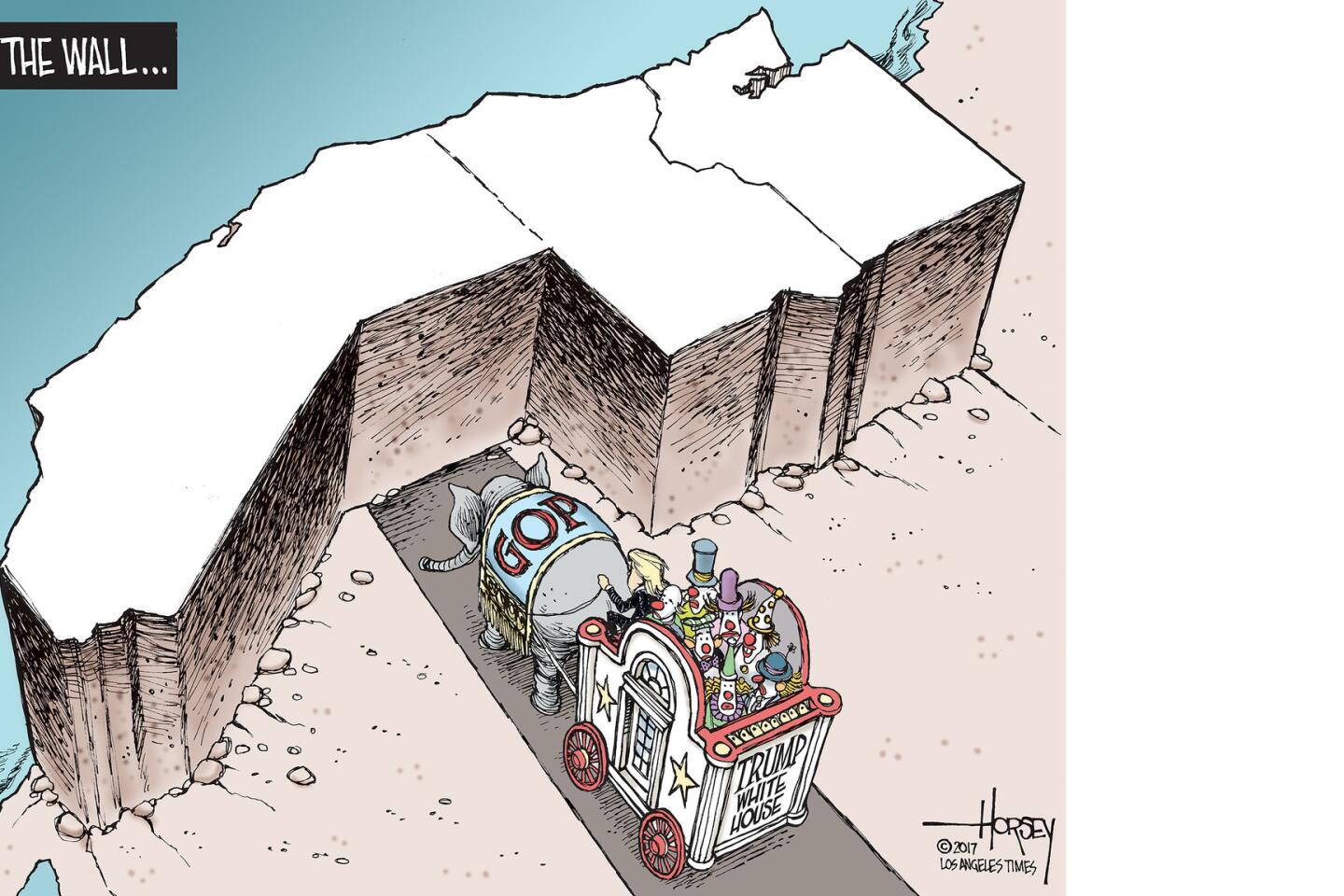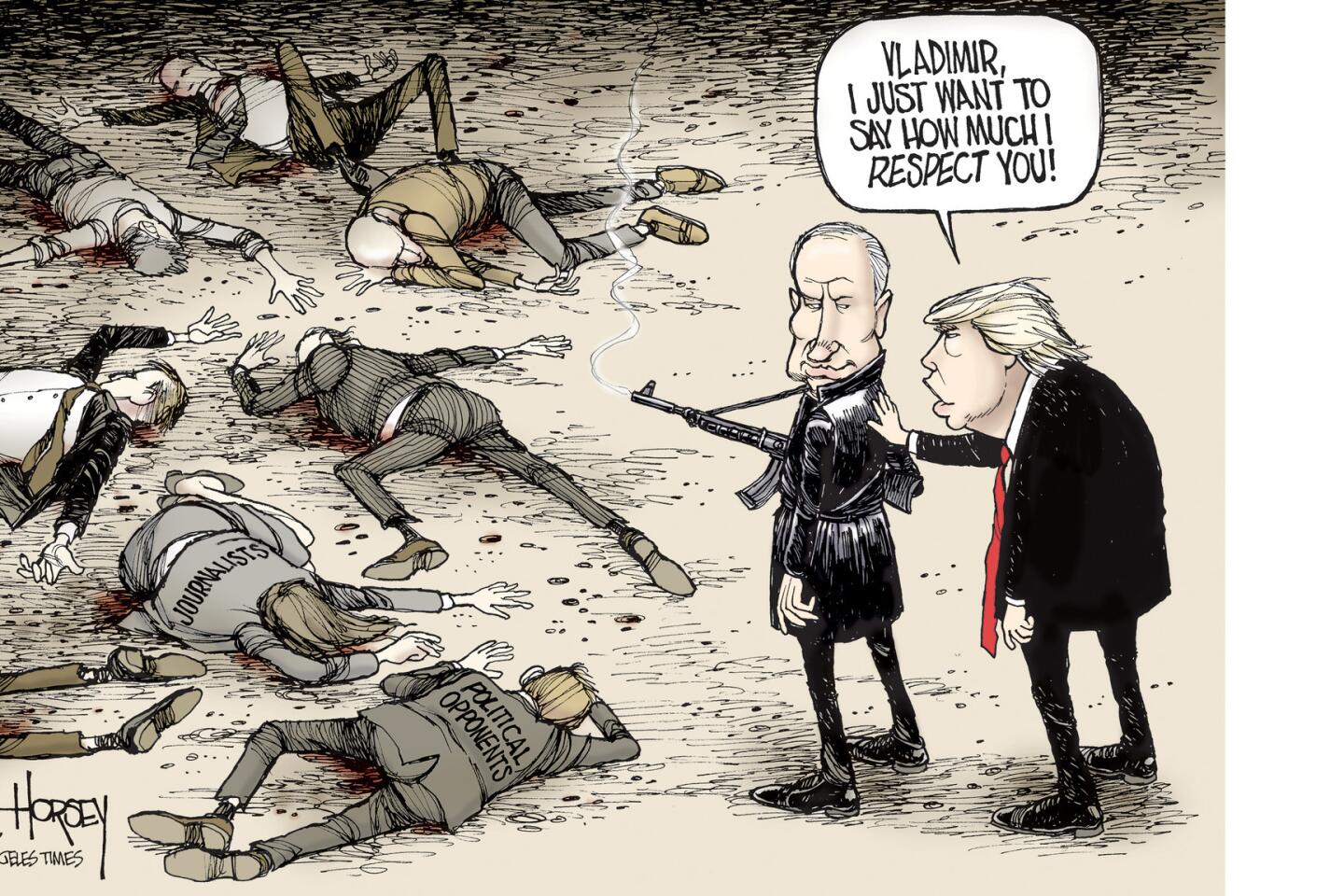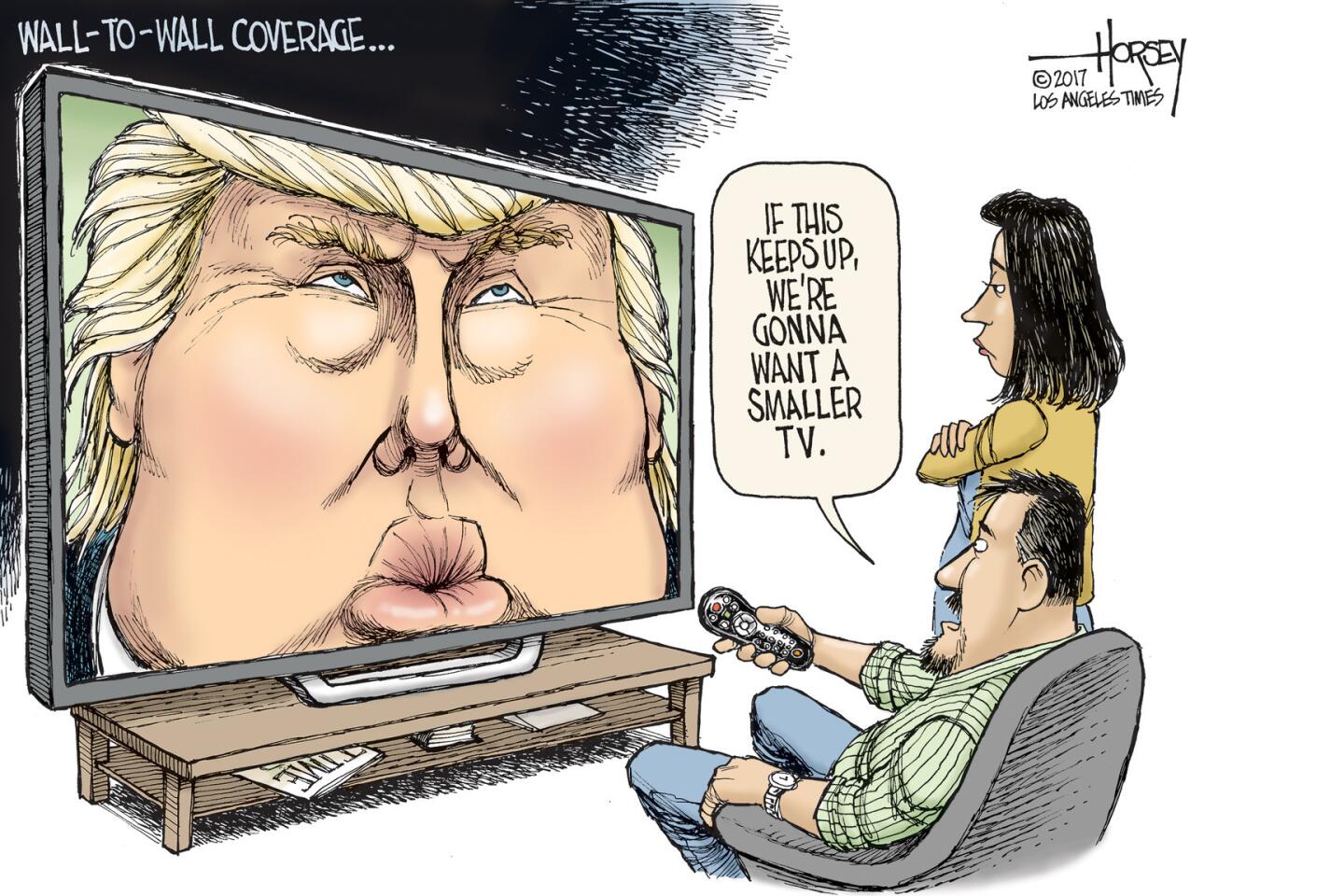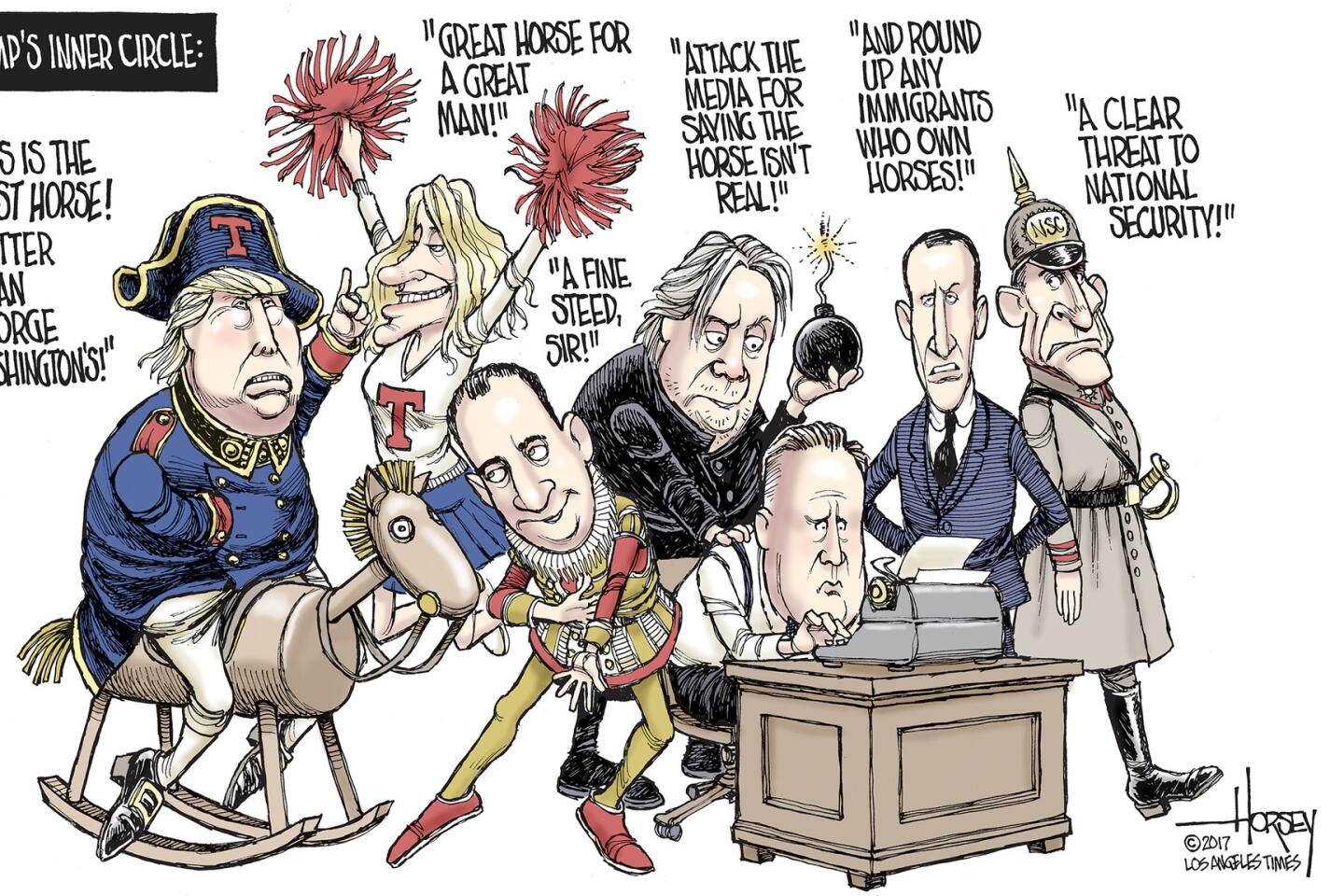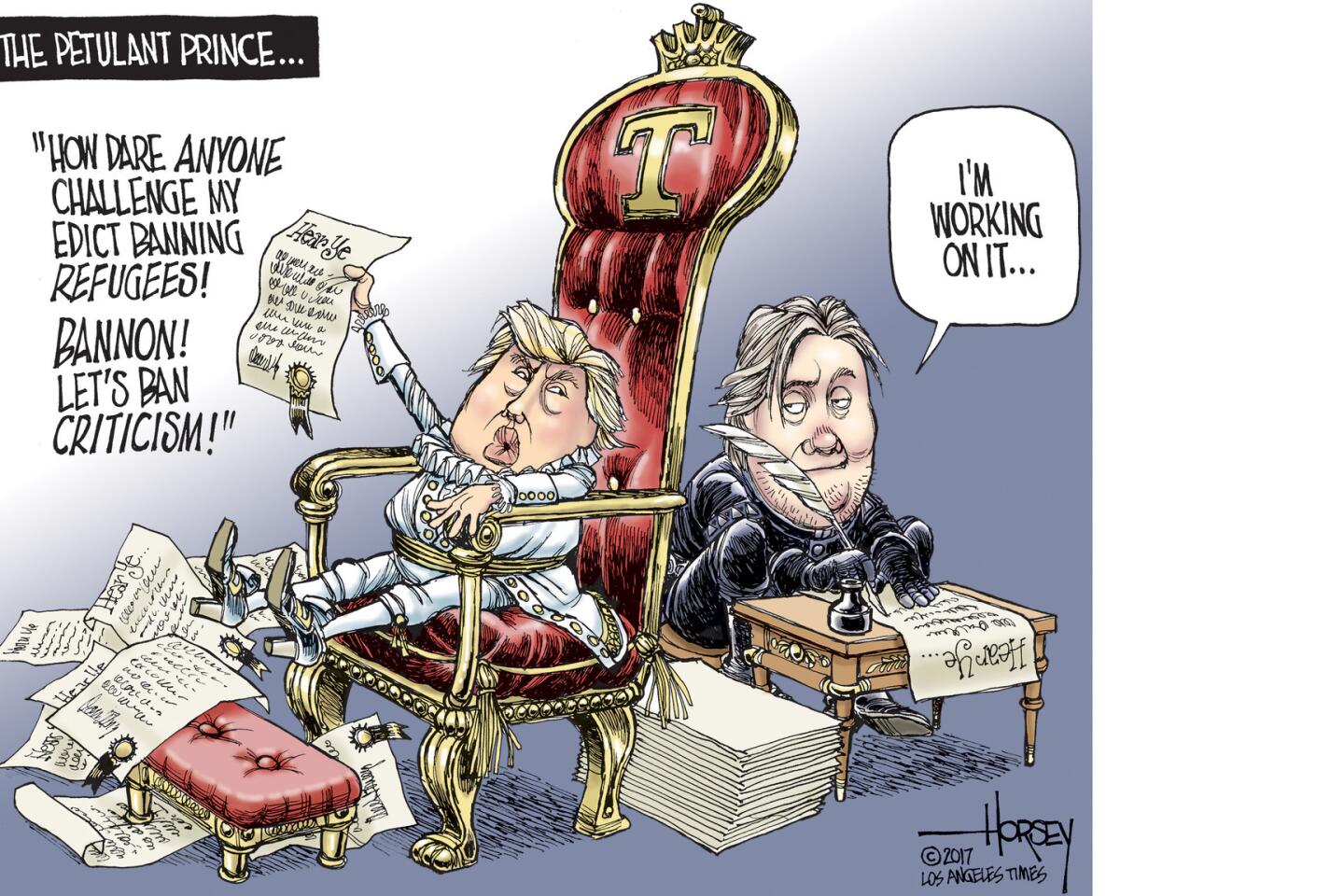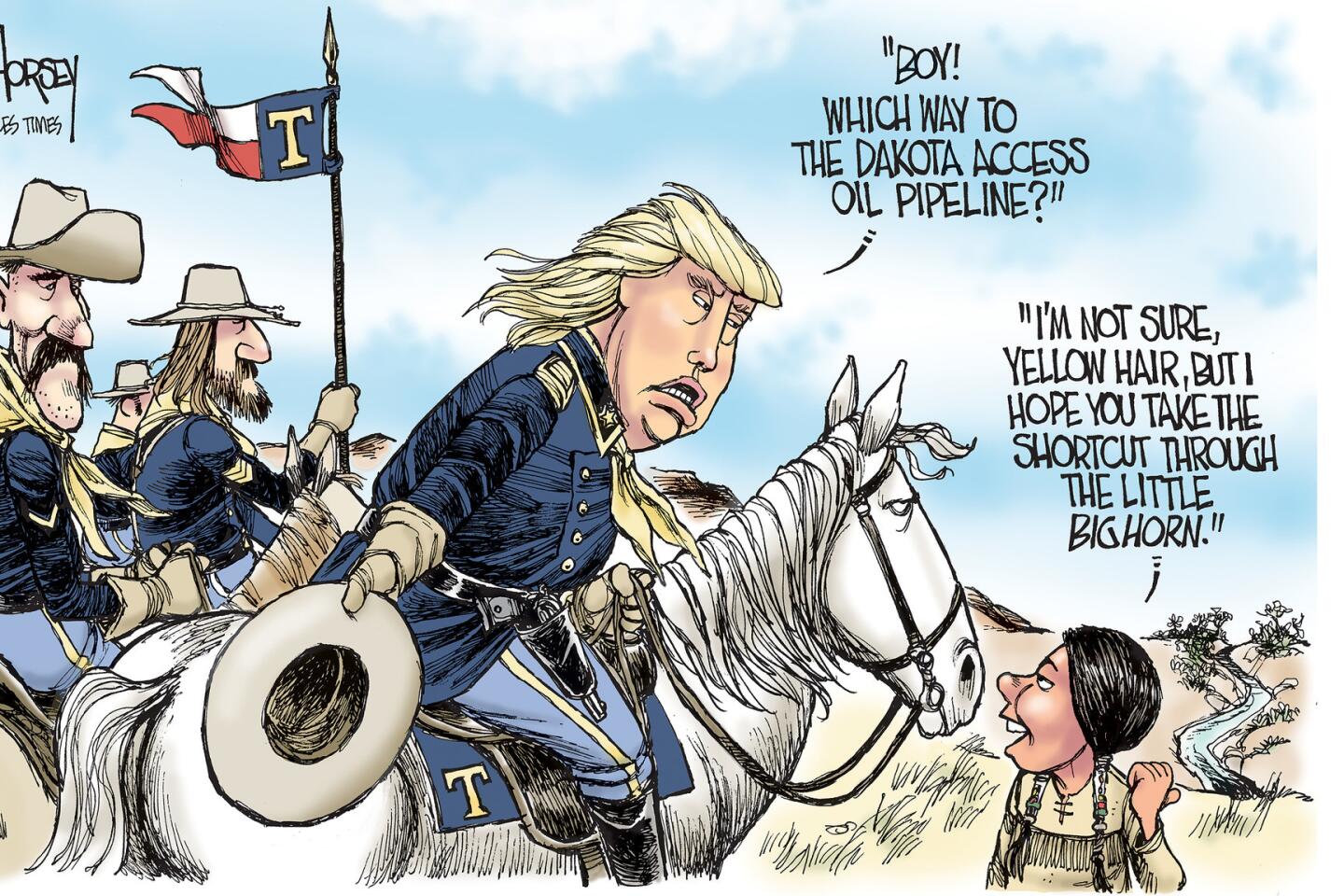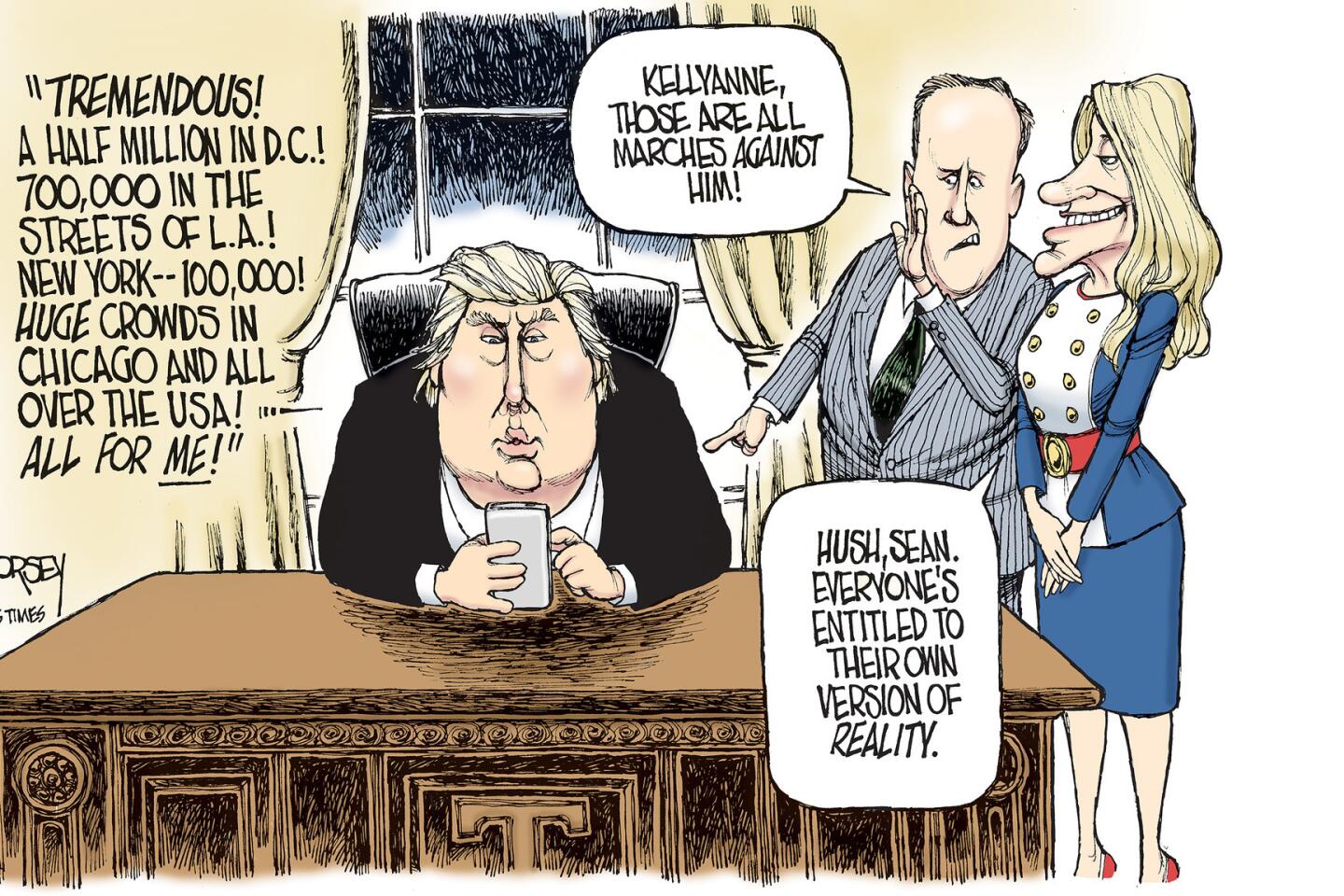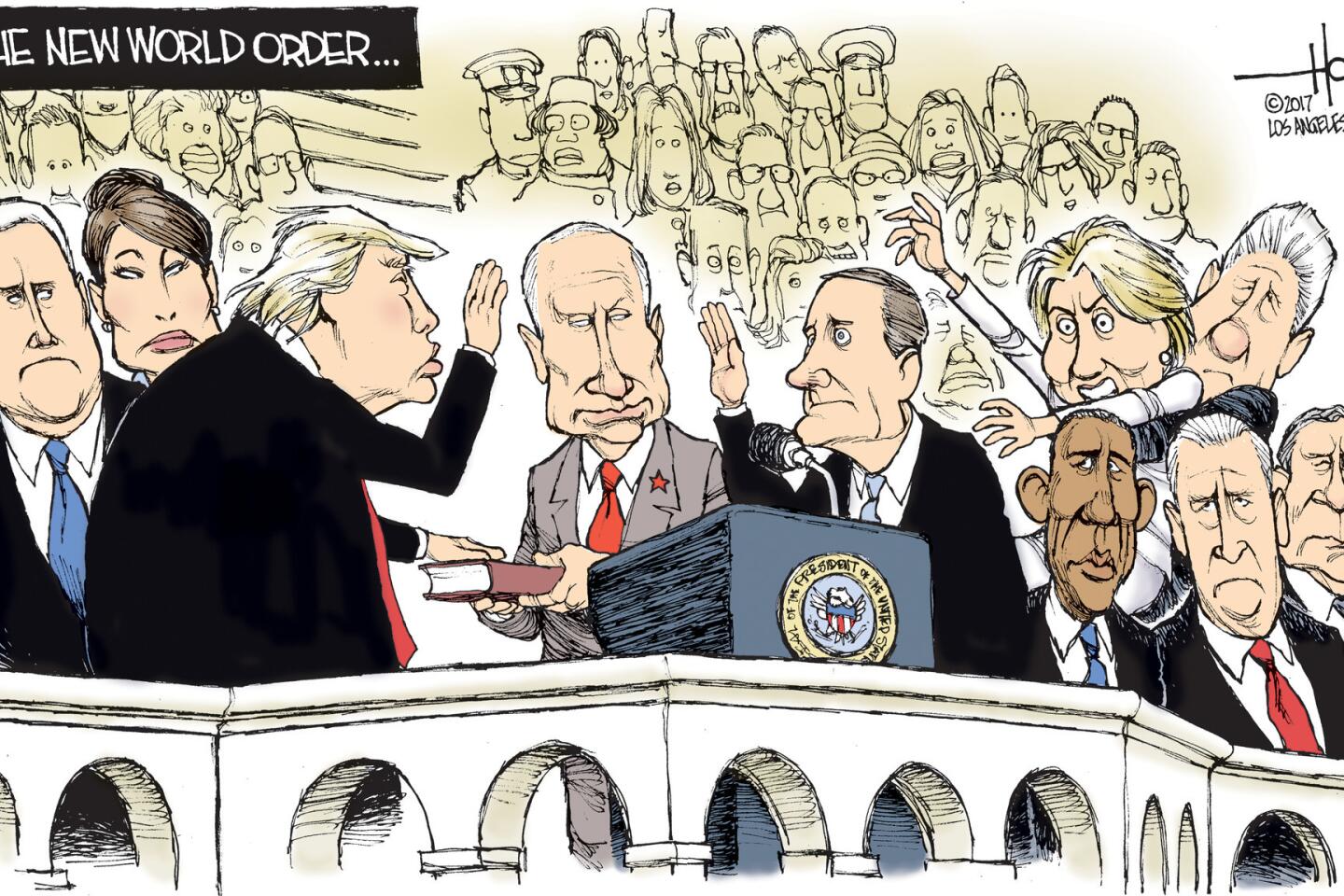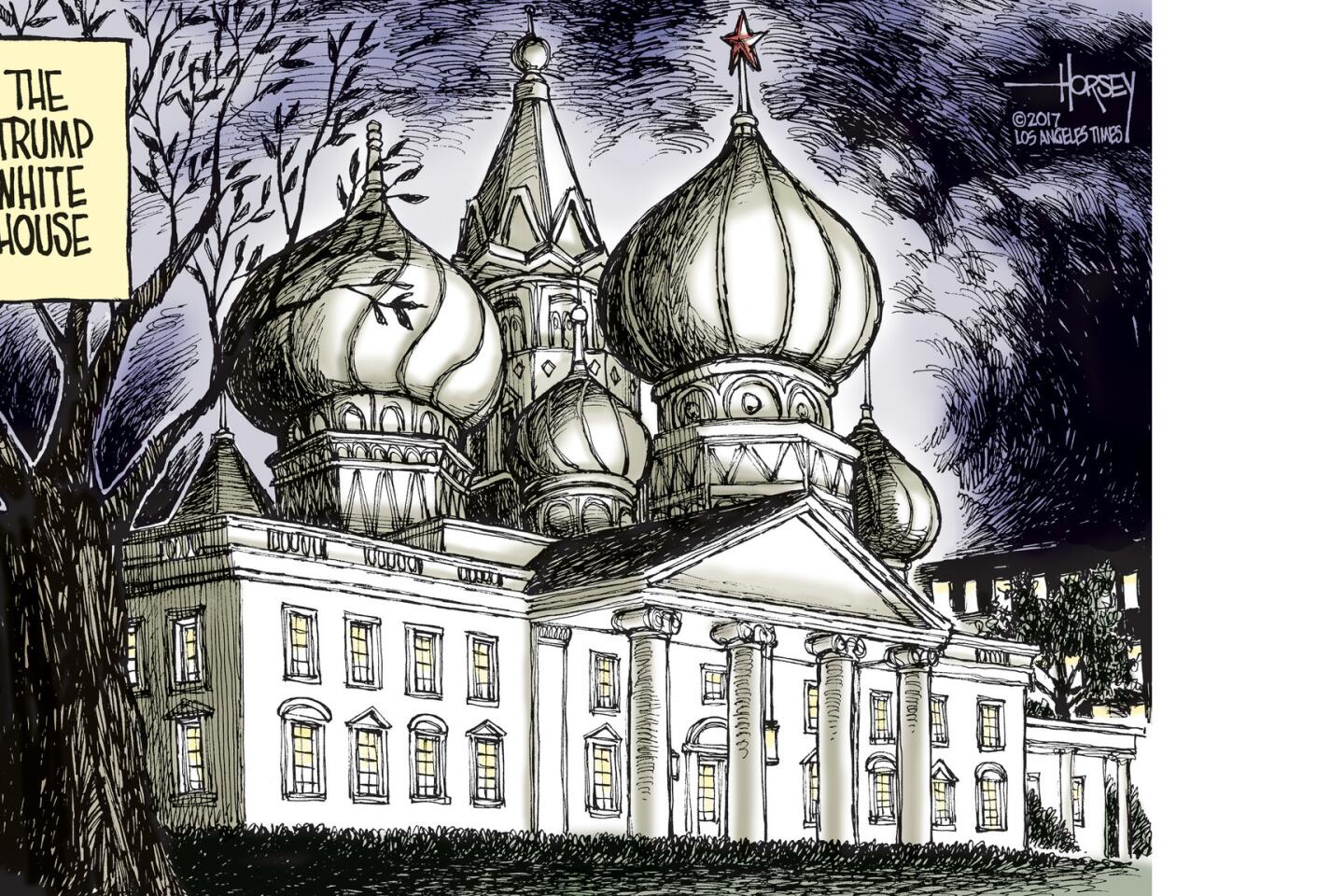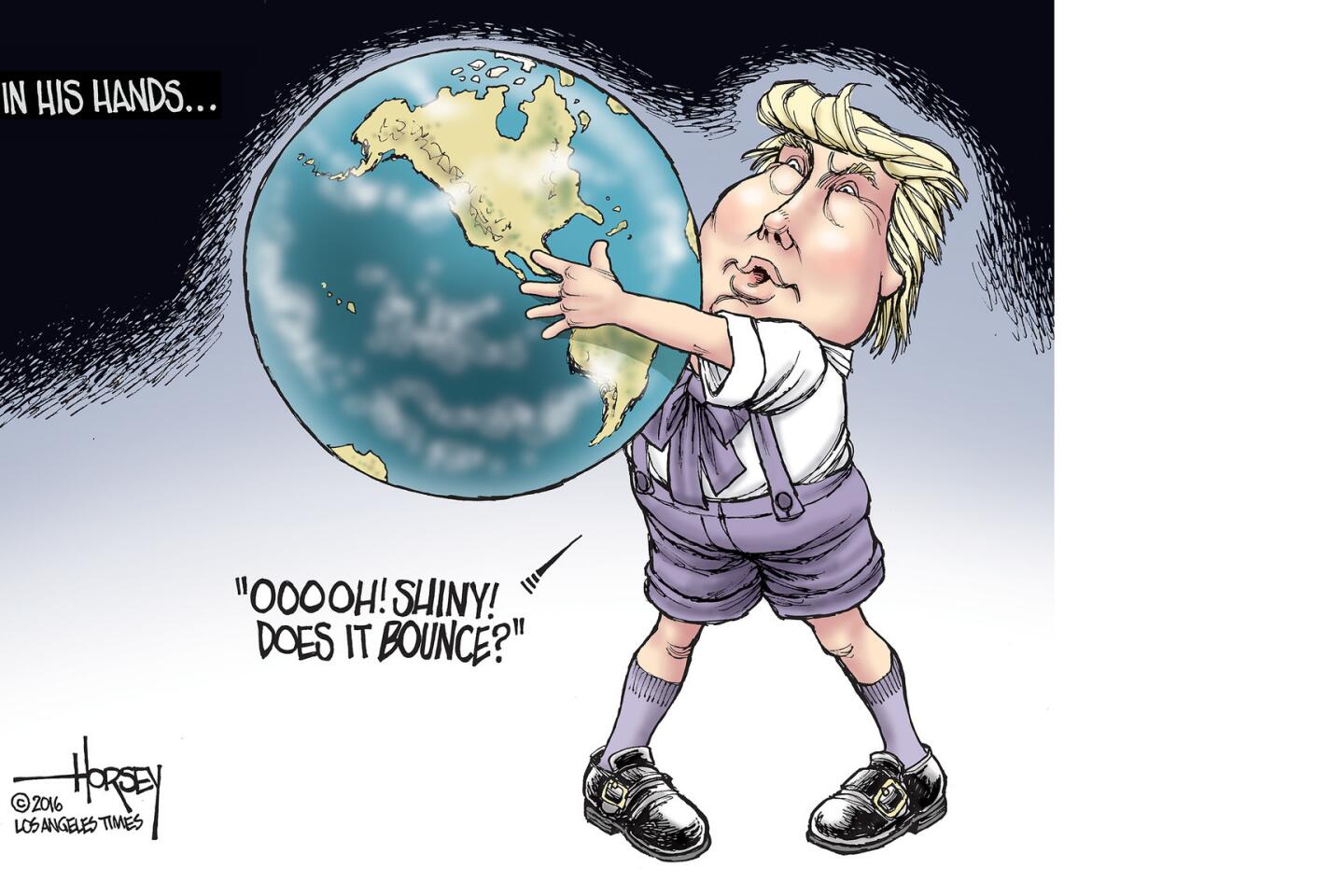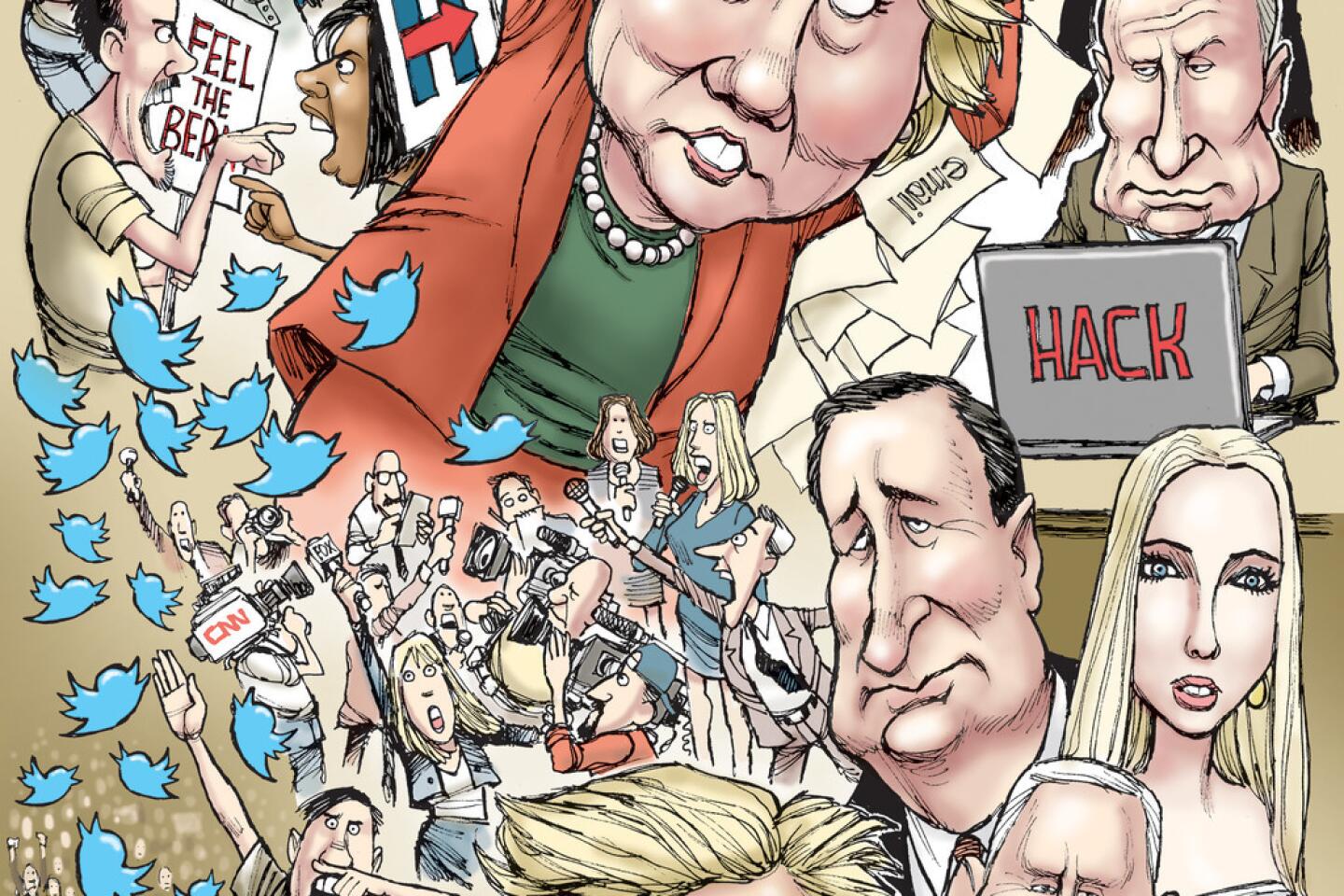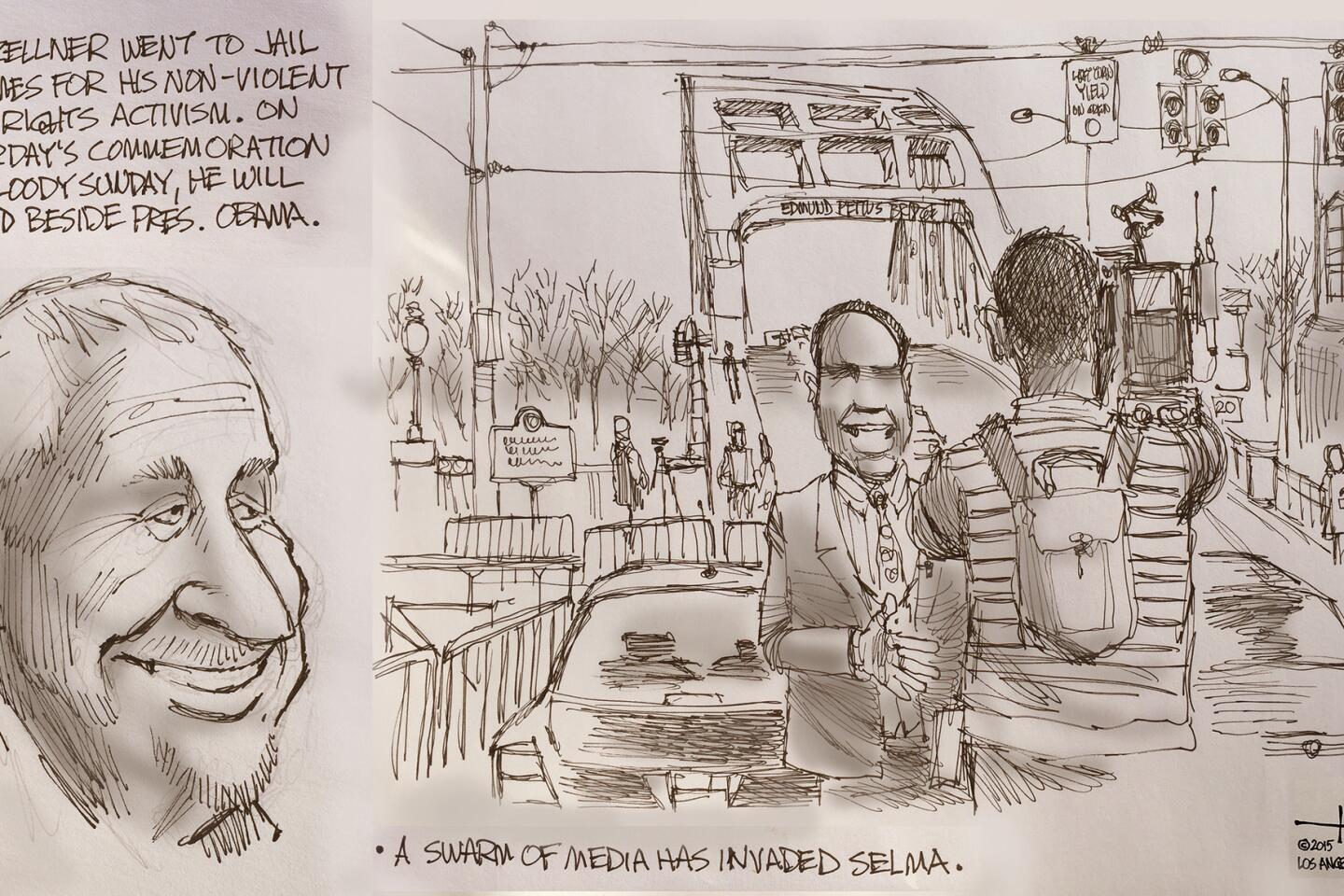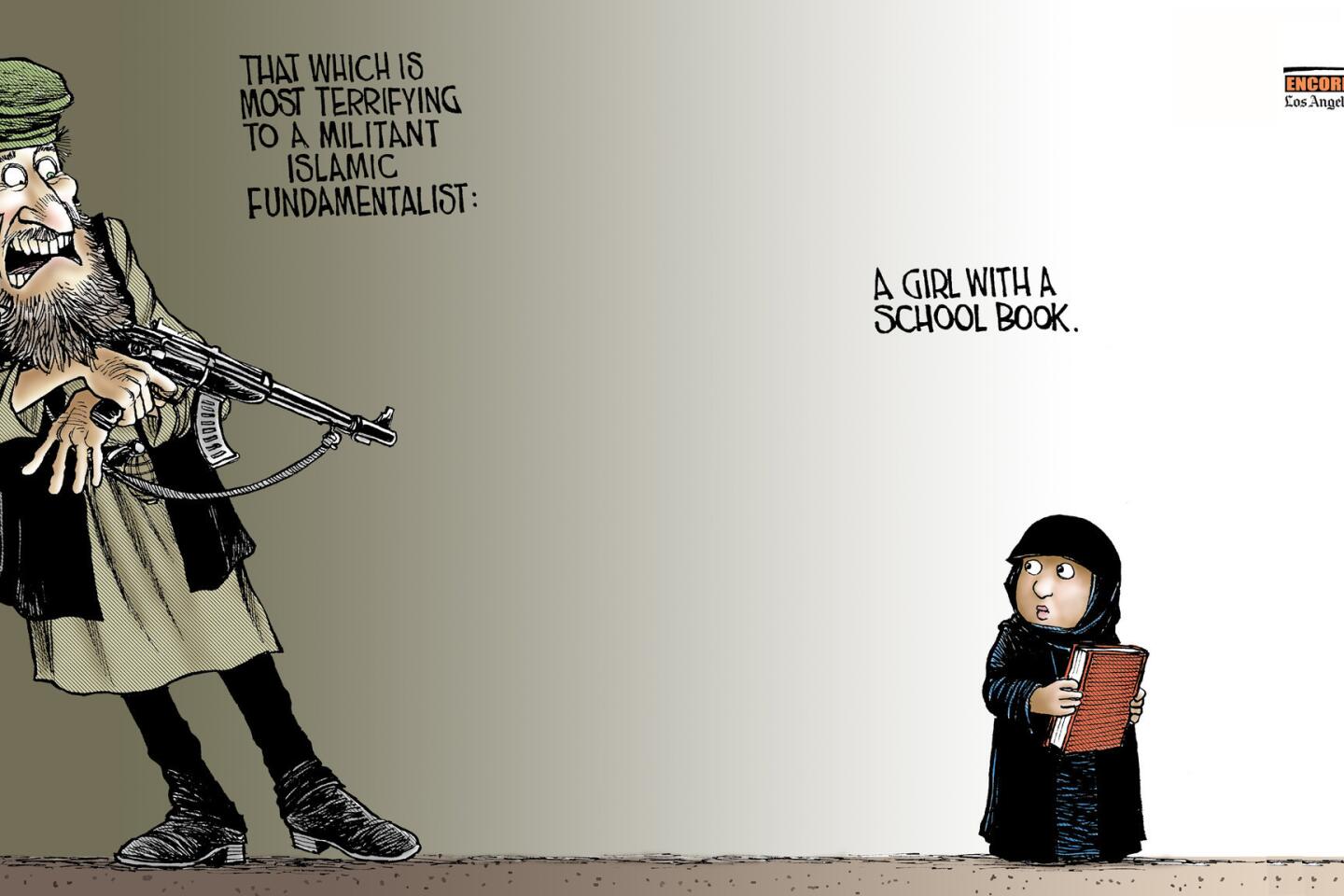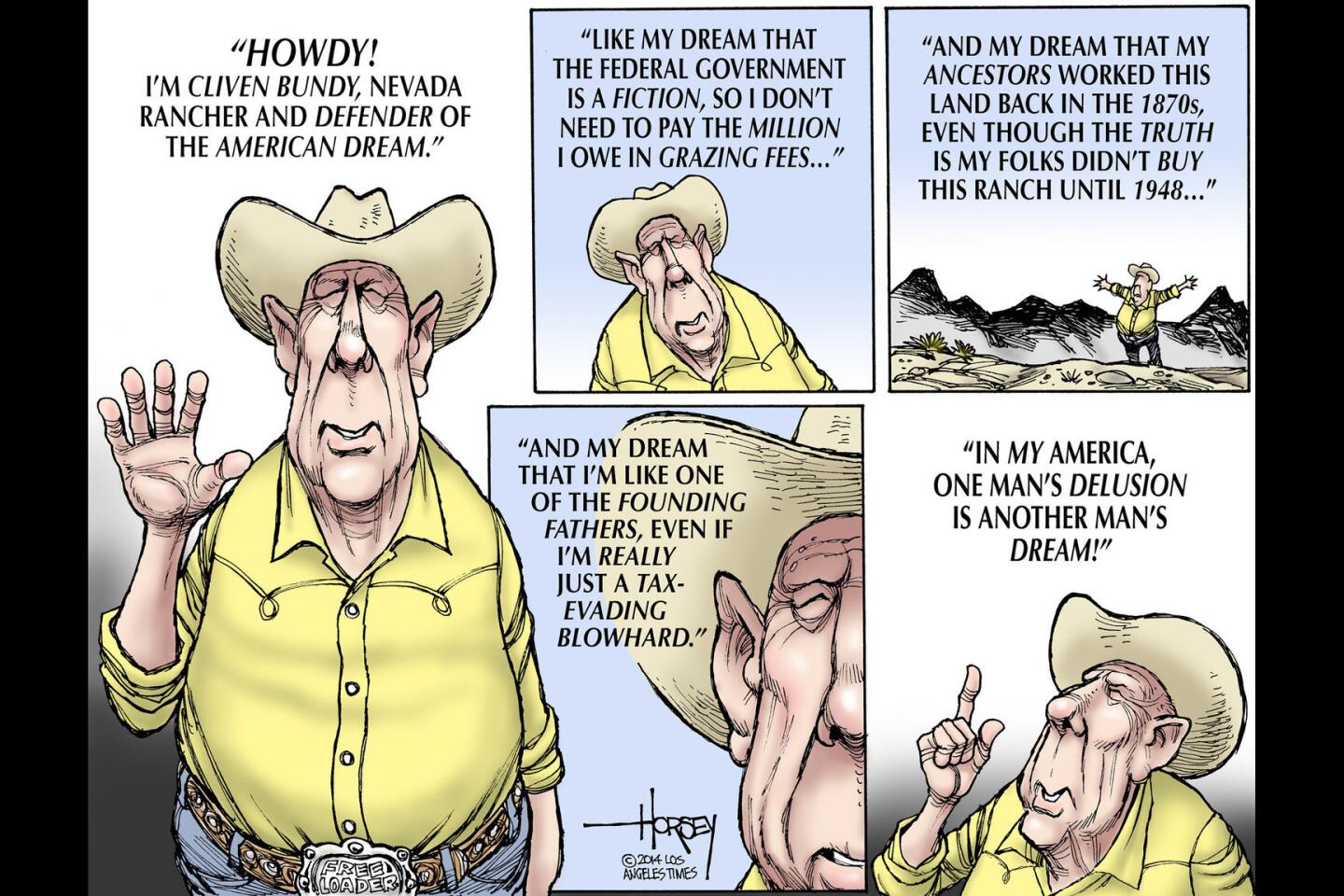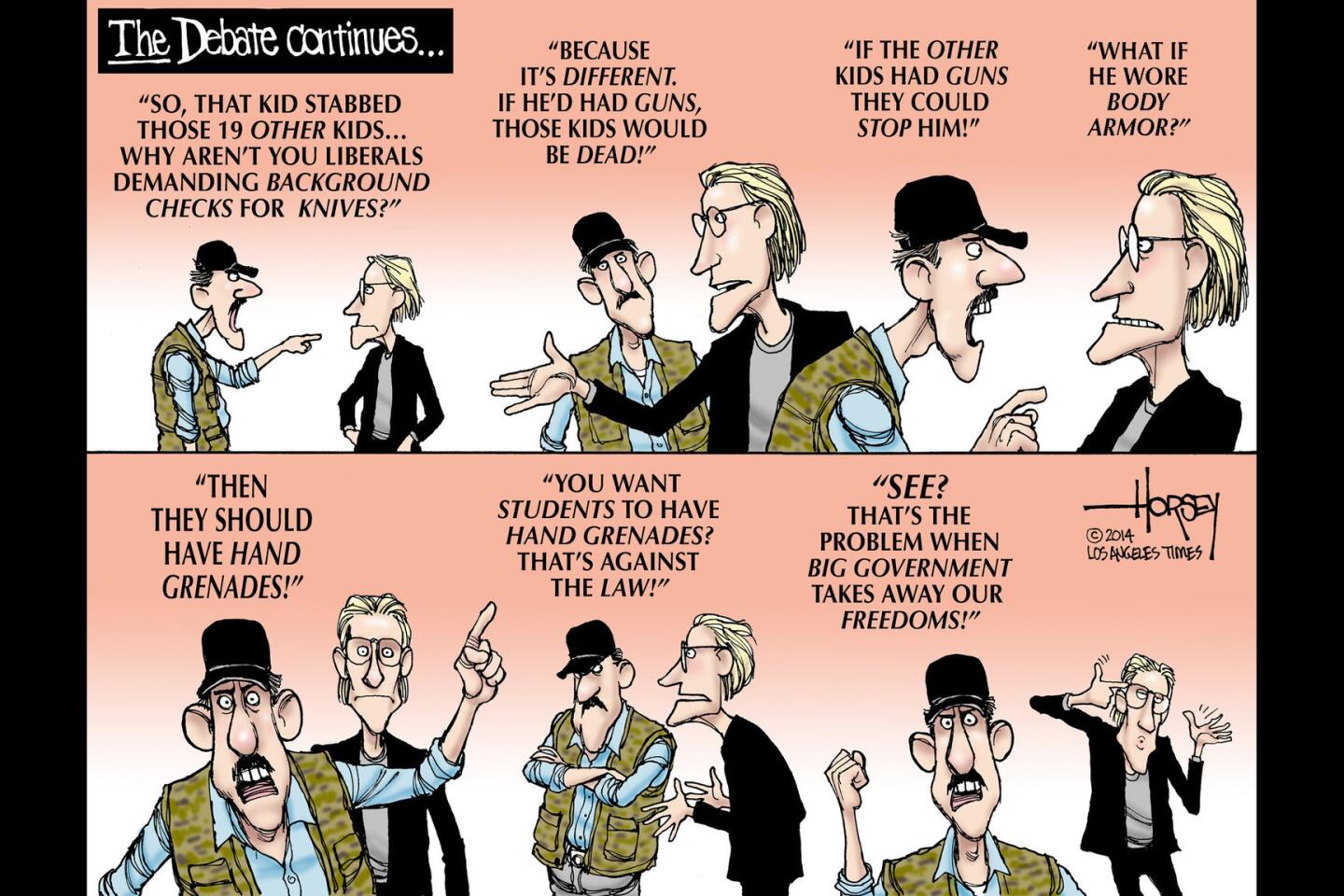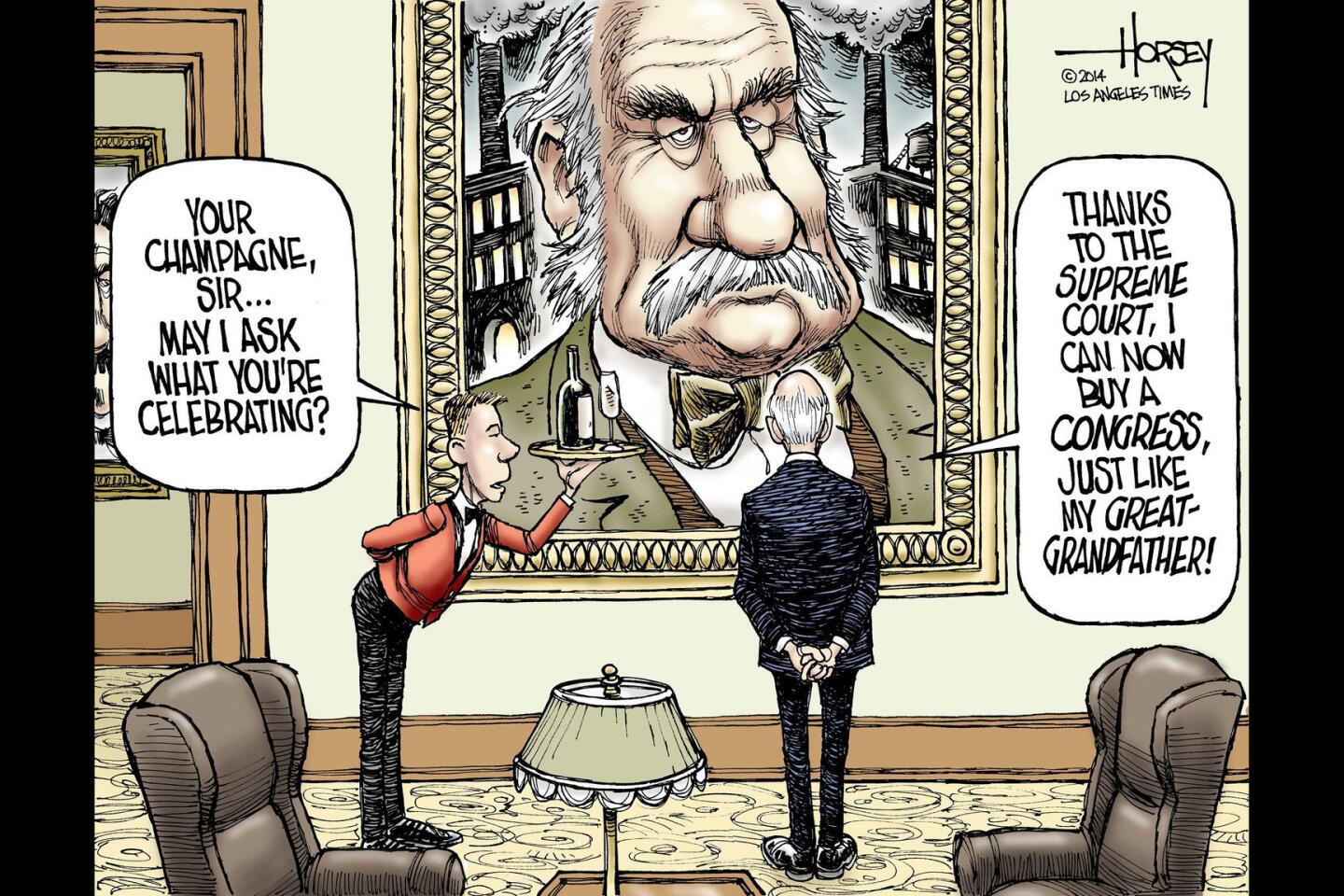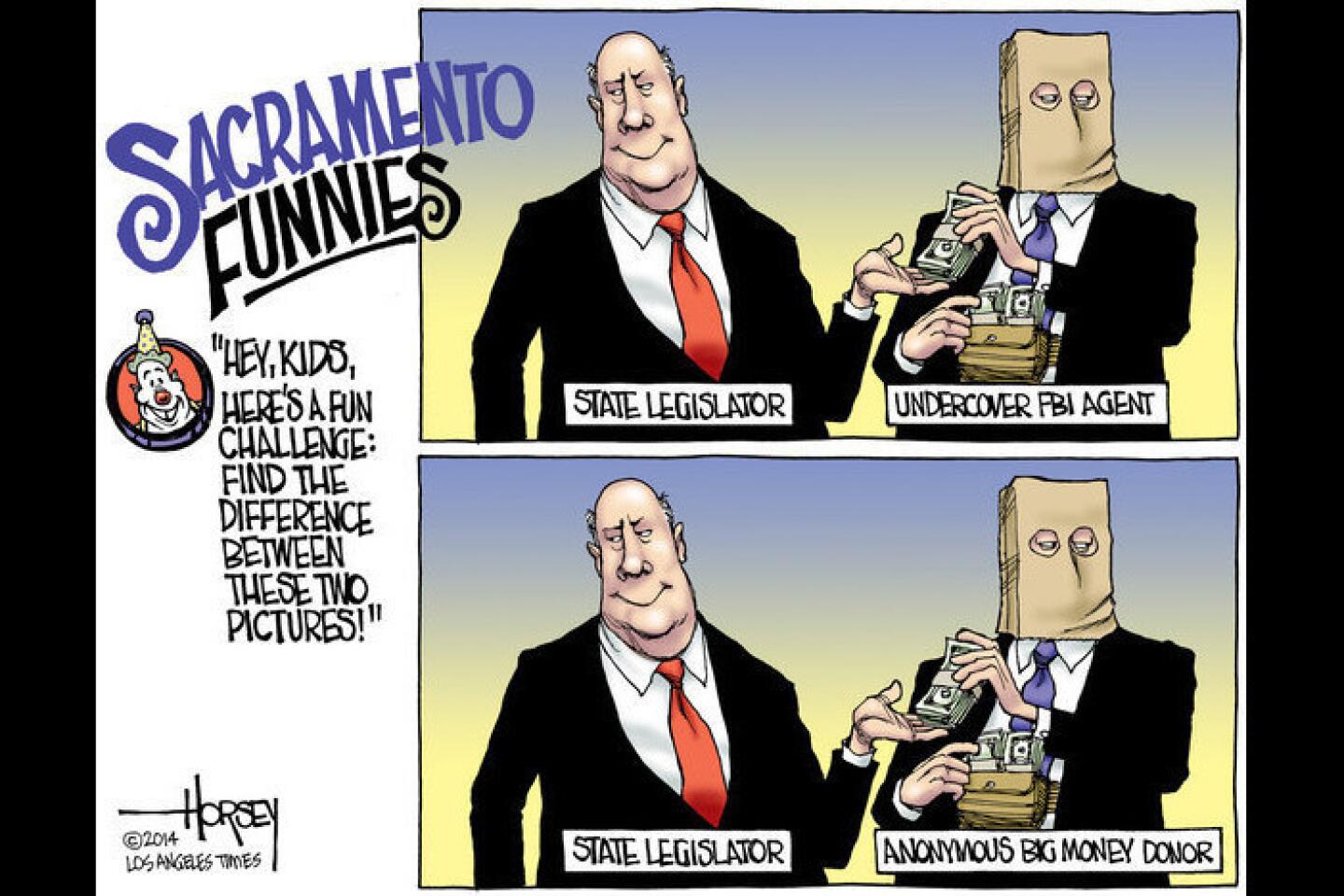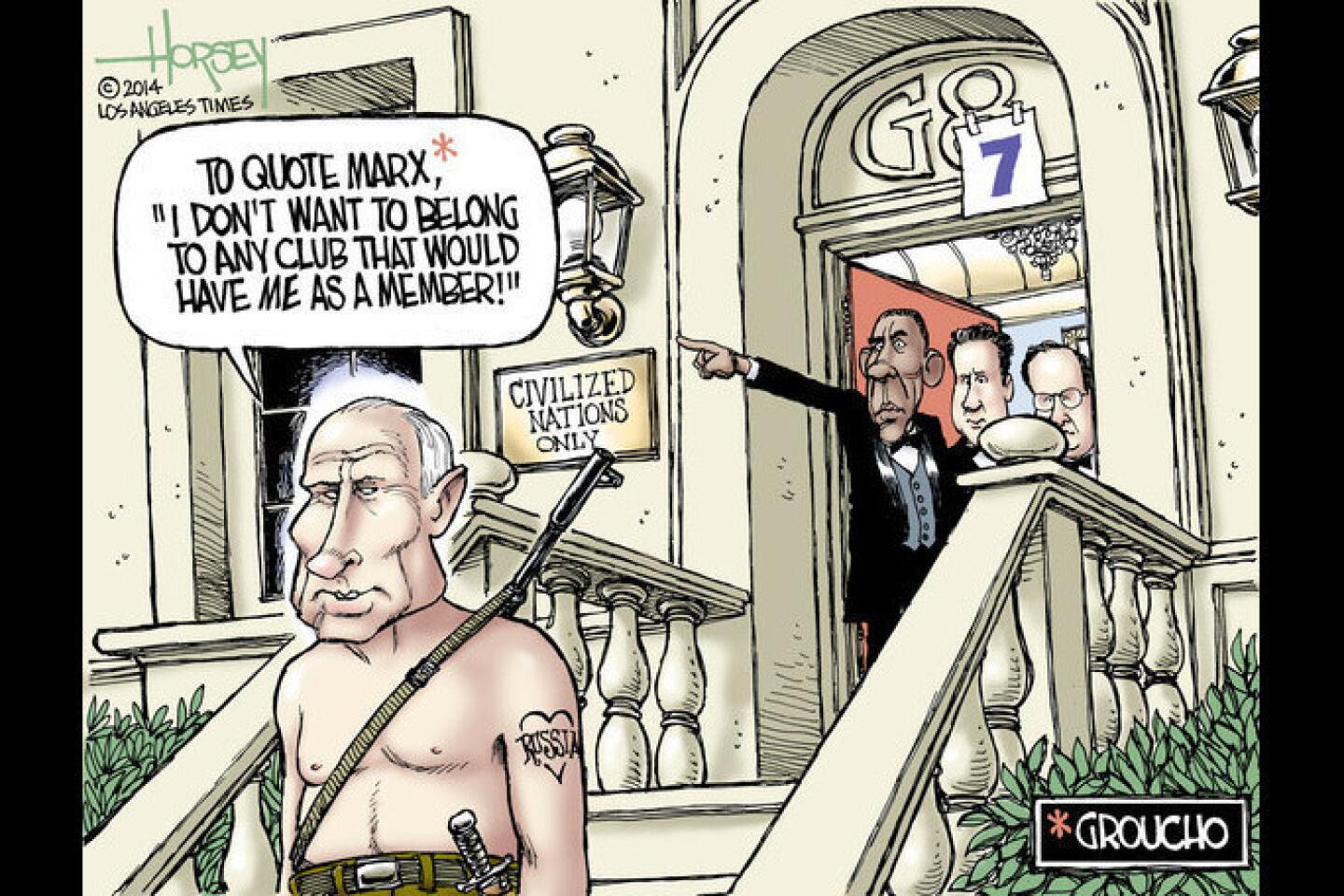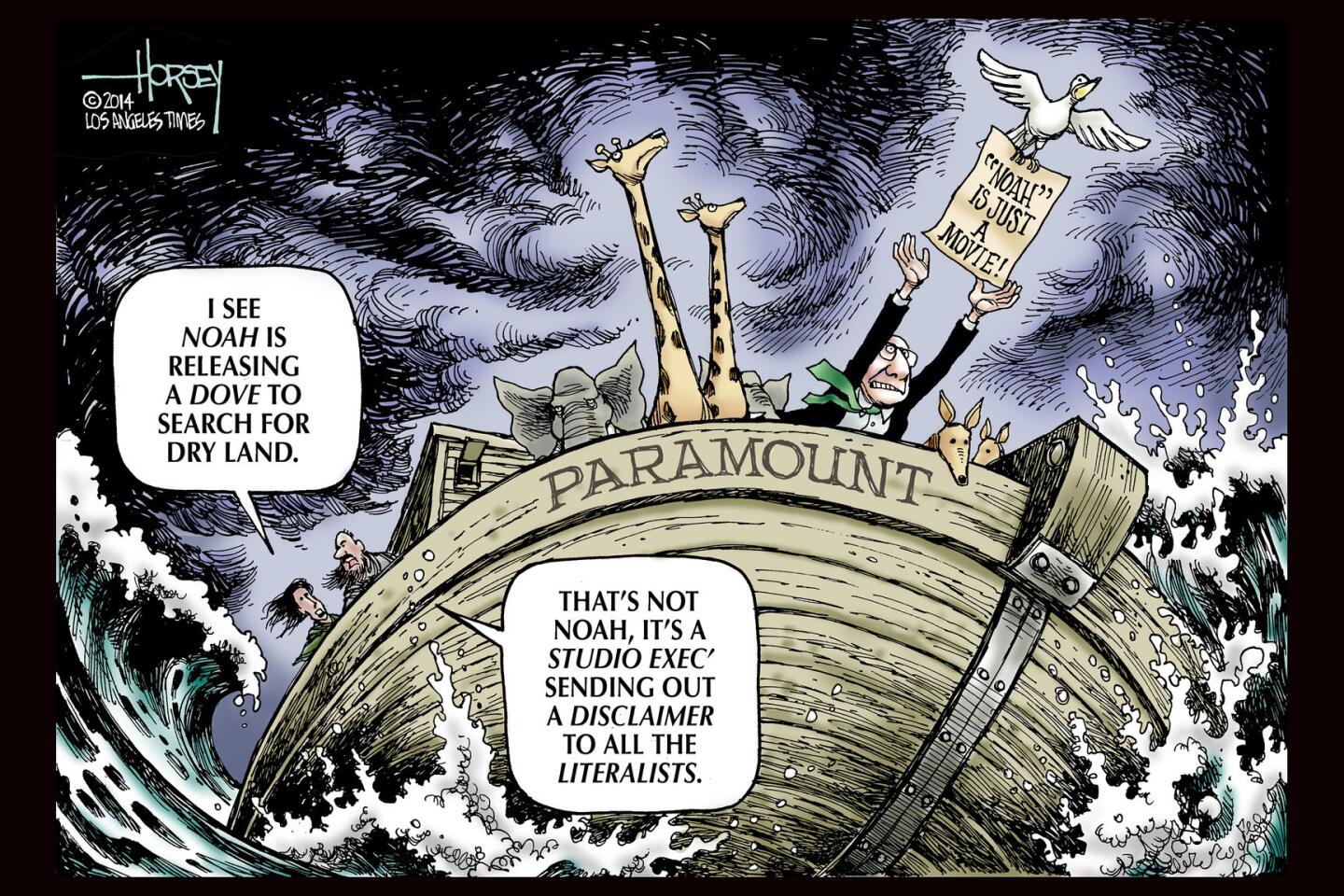Trump is being schooled by international events and sly adversaries
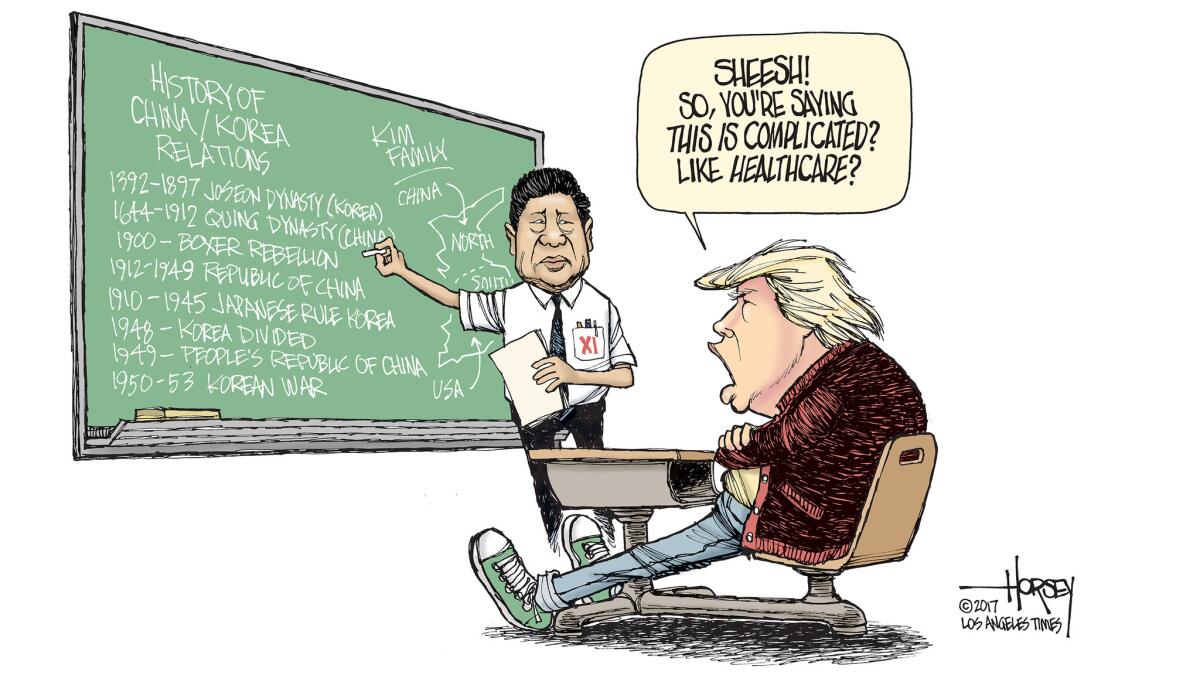
Donald Trump is learning about foreign affairs in the riskiest possible way: on-the-job training.
During the presidential campaign, Trump ranted about world issues with all the assurance and comprehension of a guy on his fourth beer shouting at a TV. NATO was obsolete, Vladimir Putin was a great leader, Syria was someone else’s problem, Mexico was going to pay for a border wall and China was manipulating currency and playing the U.S. for a chump in every possible way.
Now, after a dozen weeks as president, NATO is ‚Äúan enduring partnership,‚ÄĚ Putin is a problem, Syria is a target for American cruise missiles, Mexico is definitely not paying for any wall and Trump is best buddies with the president of China. In his press briefing on Thursday, White House Press Secretary Sean Spicer said none of these shifts is an indication that Trump has changed his mind. The world has accommodated Trump, Spicer insisted, employing his standard topsy-turvy illogic.
Well, the world has tutored Trump, that is for sure. Just as he quickly learned that healthcare, in his words, is ‚Äúan unbelievably complex subject,‚ÄĚ Trump is coming to understand that international relations has more thick woods and sand traps than an 18-hole golf course.
When he hosted Chinese President Xi Jinping at his Mar-a-Lago resort in Florida, Trump intended to press Xi to quickly fix the looming problem of North Korea‚Äôs provocative nuclear missile tests. Instead, Xi gave Trump a quick seminar on the fraught history of China‚Äôs relationship with the Koreans. In a subsequent Wall Street Journal interview, Trump said, ‚ÄúAfter listening for 10 minutes, I realized it‚Äôs not so easy. I felt pretty strongly that they had a tremendous power over North Korea. But it‚Äôs not what you would think.‚ÄĚ
It is nice that Trump is willing to change his mind when confronted with new information, but there are some problems with this particular switcheroo. First, if Trump had availed himself of information readily available from intelligence agencies or from the State Department that he has decimated with staff cuts, he would have already known ‚Äúit‚Äôs not so easy.‚ÄĚ Second, he seems awfully willing to take at face value the self-serving information provided by the leader of America‚Äôs greatest rival on the international stage. Is Trump not merely woefully uninformed, but also gullible?
After cutting into a steak dinner with Xi, Trump concluded that he had ‚Äúdeveloped a friendship‚ÄĚ that was sure to evolve into ‚Äúa very, very great relationship.‚ÄĚ Dispensing with charges he made against the Chinese during the campaign, Trump proclaimed, ‚ÄúThey‚Äôre not currency manipulators.‚ÄĚ (In response, the American dollar immediately dropped in value.)
Reaching clear conclusions about all this flip-floppery is difficult, given that it is impossible to know if Trump really means what he says on any subject. As Australia’s ex-foreign minister, Gareth Evans, said in a speech this week, Trump cannot be trusted to deliver a consistent, coherent foreign policy message.
‚ÄúPersonally driven by instinct and impulse, unhampered by knowledge or judgment, he has led an administration acting, so far, manifestly on the basis of postures, not of policies,‚ÄĚ Evans said.
Since Trump became commander in chief, Australia and other allies of the United States have looked on with alarm, not only because of Trump‚Äôs erratic nature and loose words but because so many people in his inner circle are disturbing in their own peculiar ways. His first pick for national security advisor, Gen. Michael Flynn, turned out to be an agent for one foreign power ‚ÄĒ Turkey ‚ÄĒ and disturbingly close to another ‚ÄĒ Russia. His chief advisor, Steve Bannon, is a neo-isolationist with the mind of a conspiracy monger. The person Trump has chosen to run everything from China policy to Middle East peace negotiations is his callow son-in-law, Jared Kushner. And his secretary of State, Rex Tillerson, is a media-phobic Texas oil man who is also learning on the job.
Reassurance that there might be thoughtful adults in the Situation Room has come from the new head of the NSC, Lt. Gen. H.R. McMaster, and Defense Secretary Jim Mattis. They seem to be tugging American foreign policy back toward the mainstream. Yet, being military men, it might logically be assumed they will lean toward military solutions to global problems ‚ÄĒ a barrage of missiles in Syria, a bunker-busting bomb dropped in Afghanistan ‚ÄĒ rather than smart diplomacy.
The U.S. needs a reinvigorated State Department to provide balance and, most of all, a man in the Oval Office who can inspire confidence. Right now, though, the guy at the top is getting schooled by events and by other world leaders.
Follow me at @davidhorsey on Twitter
More to Read
A cure for the common opinion
Get thought-provoking perspectives with our weekly newsletter.
You may occasionally receive promotional content from the Los Angeles Times.

